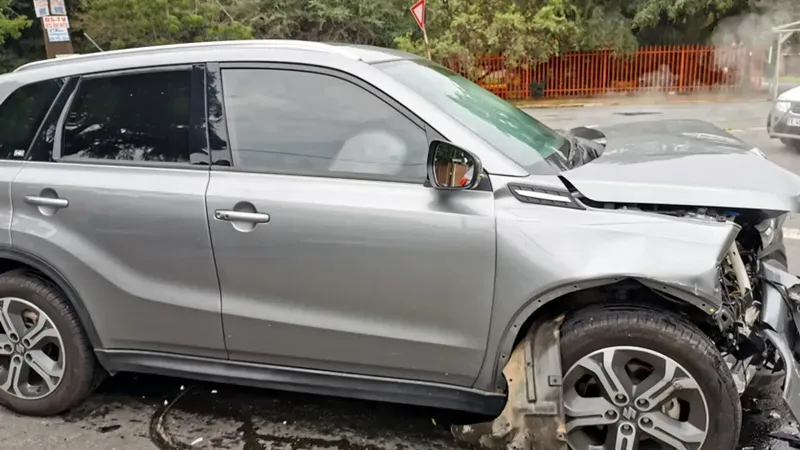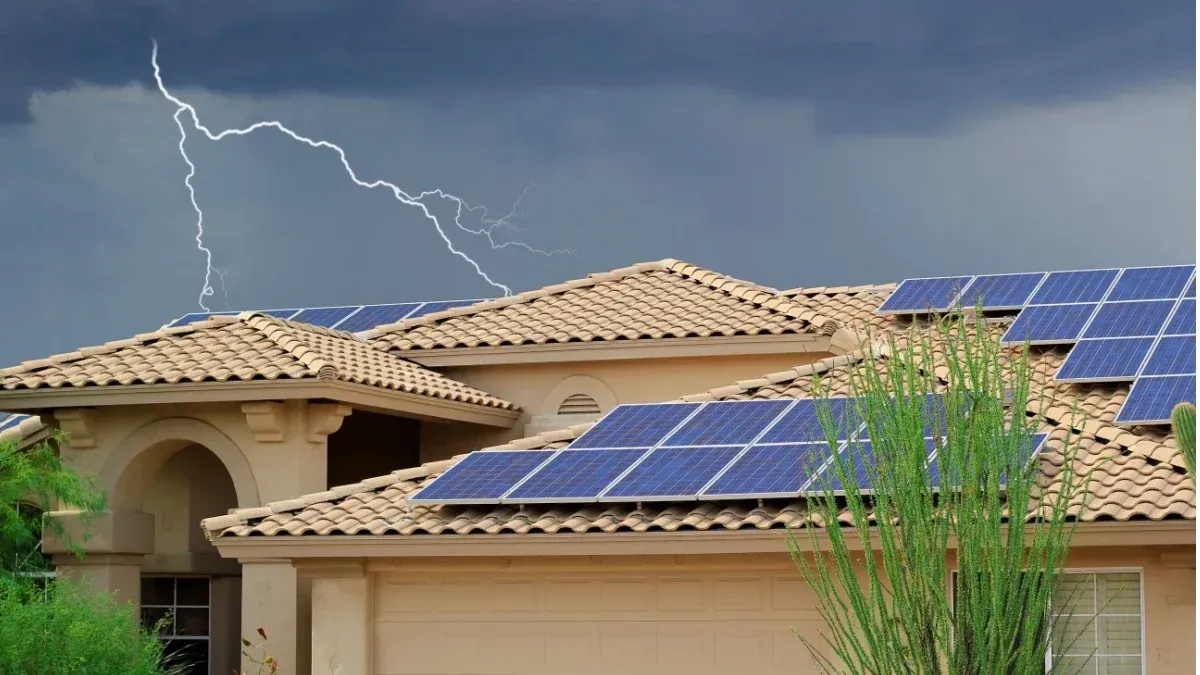Warning to people with solar panels in South Africa
South African insurers are warning of faulty equipment in household solar installations, some of which have damaged property.
Standard Bank Insurance is the latest to join this chorus, which urges clients to ensure that rooftop solar is installed correctly.
The sudden return of load-shedding and heightened electricity prices may again prompt South African households and businesses to install solar.
However, for homeowners considering moving to solar, reports of faulty equipment and dangerous installations causing damage are a cause for concern.
The Consumer Goods and Services Ombud (CGSO) recently issued a warning to households after it noted a rise in complaints about solar systems and generators.
The head of products at Standard Bank Insurance, Dr Hardy Ncube, said insurers have also started to see a rise in unqualified and inexperienced solar installers, leaving some households with a non-functional power solution.
While rare, more common incidents include structural damage to the home due to defective design and workmanship or costly repairs after installation.
Ncube said that in the absence of legal requirements to become a solar installer, consumers must do their homework before choosing a supplier to ensure that the job is completed properly.
While some homeowners and businesses consider insurance a concern that comes after a solar installation, understanding what an insurer requires provides helpful guidance.
Ncube pointed out that it’s important to note that insurers do not cover faulty equipment, defective design or non-compliant installation, including damage to the home resulting from such.
To ensure this is not the case, your insurer will typically ask you to provide an invoice detailing the brand, size, type and number of solar panels, inverters and batteries.
The insurer will also typically require an Electrical Certificate of Compliance as required by regulation, evidence of municipal approval where required, and sometimes a structural engineer’s certificate to ensure the soundness of the installation.
In response to the problem of non-compliant installations, the South African Photovoltaic Industry Association (SAPVIA) reviewed its current registration system.
Ncube said it has created the PV Green Card assessment as a form of accreditation that separates qualified and trained installers from the so-called ‘bakkie brigade’.
The bakkie brigade consists of installers who claim to do the job but use components that have not been certified or don’t have proper warranties.
It’s also essential to confirm that a registered electrician will be used to connect the system to the main distribution board and that the required Certificate of Compliance will be issued.
Notably, a reputable solar installer will conduct a site visit to assess the conditions of the roof and property before finalising a quotation, and this should always include a workmanship warranty, Ncube said.
“Finally, it is always a good idea to ask anyone doing work on a property to provide proof of appropriate insurance to cover any damage that may take place.”
Once the reputation and expertise of an installer has been confirmed, it’s important to take a close look at the details of the system being offered.
“Unfortunately, the high demand for solar energy in South Africa has led to a flood of sub-standard equipment into the market,” Ncube explained.
“While the prices of these components may look attractive, the long-term costs of inefficiency, failure and electrical and fire hazards make this a route to avoid.”
Online research is again suggested, as well as making sure the products offered are backed by appropriate manufacturers’ warranties or guarantees and the company carries the relevant licenses or accreditation to install.



